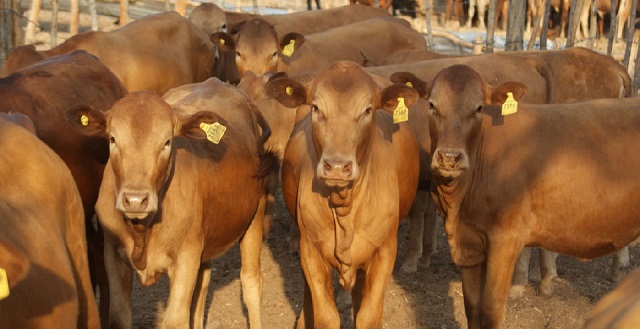
The Sunday News

ONE of the things that I have had to contend with in my experience working with a lot of communal smallholder livestock farmers, are myths and voodoo science around livestock production.
While it is expected and generally accepted that any community of people is bound to have beliefs and myths that they abide by, at times these can turn out to be the very thing that is keeping that community down.
While some practices can be easily explained away by clarifying the science behind the action, others are simply myths based on voodoo science and traditional norms. It is very common to find some farmers, who still believe that no woman should go into their kraals, as this will somehow affect the reproduction of their animals.
Another very common myth among most smallholder communal farmers, is that women on menstrual cycle should not eat milk from one’s cows, as that will affect both the cow and the calf. Farmers believe that the calf will develop some skin disease if milk from the dam is given to a woman having her menses.
This is obviously not true but you will be surprised how widespread this belief is among communities across districts. While this may seem like a harmless myth, it has two obvious problems. The first one being that, it perpetuates stereotypes against women, something modern society has been fighting to rid itself of.
Secondly, this myth suppresses the economic growth potential of most communities, as they find themselves unable to benefit from milk from their cows. Farmers with such beliefs find themselves unable to sell milk to their neighbours and the community in general because of this negative belief.
Imagine someone milking up to 30 litres of milk every day, which can easily give them US$30 but because of this myth, he cannot sell the milk. This translates to about US$900 lost in a month and US$4 500 lost in five months of milking!
All because of an unsubstantiated myth, which somehow continues to find traction and prominence in most of our rural communities. Extension messaging and farmer training should have sessions that specifically aim to debunk some of these retrogressive beliefs.
A lot of poor husbandry practices are rooted in unfounded myths and beliefs and this can only change through protracted trainings with messaging clearly designed to de-socialise farmers from certain behaviours and beliefs.
I have just highlighted one myth and dramatised its effect on the farmer, but there is a whole range of myths and beliefs that are counter productive to livestock farmers and it’s about time these are tackled head on, so that their effect on livestock production is minimised.
On a separate note, I continue to advise and campaign for livestock farmers to prepare and brace themselves for the harshest season in recent history.
I came across one article, which indicated that Southern Africa has had its driest February since records began in 1981. Now if that does not scare you nothing ever will.
The import of this observation is that for livestock farmers it cannot be business as usual. In fact, we need to do unusual things to pull through this drought. As farmers you will need to stockpile even some unusual feed items, no matter how small in quantities they can be.
This will range from tree leaves, tree pods, and some wild fruits. You will even have animals devouring cactus trees, which they ordinarily do not eat. If you have a field with cactus trees (Amadorofiya), please protect it with your life.
These are succulent and animals eat them, never mind that they have thorns.
The point I am trying to drive home, is that one has to go beyond the normal realm of operation to survive what is coming.
Look beyond the traditional sources of animal feed to save your animals, and these vary from one area to another hence it may be difficult for me to state all the potential non-traditional feed sources.
However, farmers know these feed sources and the advice is to stock as much as you can get.
Uyabonga umntakaMaKhumalo. Mhlupheki is a livestock specialist and farmer. He writes in his own capacity. Feedback [email protected]/cell 0772851275



